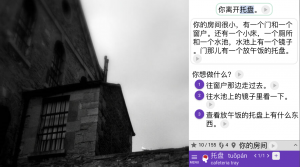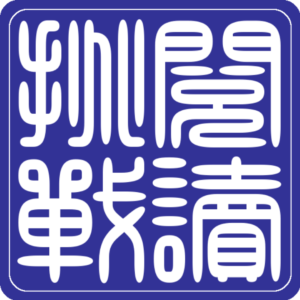Reading is one of the most important skills when learning a language. It’s an excellent way to expand vocabulary, learn grammar and improve your 语感/語感 (feel for the language).
Yet many students don’t read enough, and when they do it, they do it in the wrong way.
The most common mistake is spending all reading time on intensive reading, meaning that you read relatively difficult texts and try to understand everything. Advancing in your main textbook is one example of this. The total amount of text you see in Chinese is extremely limited, and this is a problem.
What you ought to do in addition to that, and in much larger quantities, is to read texts that are at or below your current level. You need breadth. You need diversity. You need to read characters and words over and over in different, meaningful contexts. You need to solidify and become more familiar with what you have already studied. You need to read more to gain fluency. You need extensive reading!
Hacking Chinese reading challenge, April 10-30, 2025
Hacking Chinese Challenges is about building language skills through daily practice and friendly competition. By focusing on one specific area of learning over a limited period, you will be able to learn more!
Tune in to the Hacking Chinese Podcast to learn more about Hacking Chinese Challenges:
Available on Apple Podcasts, Spotify, YouTube and many other platforms!
This is how you sign up and join the challenge:
- Sign up (using your e-mail, Facebook or Twitter)
- View current and upcoming challenges on the front page
- Find the reading challenge and click “Enroll!”
- Set a reasonable goal (20-100 minutes per day depending on your situation)
- Find suitable learning materials (see below)
- Report your progress on your computer or mobile device
- Check the graph to see if you’re on track to reaching your goal
- Check the leaderboard to see how you compare to others
- Share progress, tips and resources with fellow students
Please note: The challenge starts on the 10th, so even if you can join now, you won’t be able to report progress until then.
Try mylingua and win prizes!
 This month’s challenge is sponsored
This month’s challenge is sponsored
- Anyone can try mylingua premium for free for the duration of the challenge by using this link
- Six participants have a chance to win 3 months of free subscriptions, worth $45 each.
mylingua is a new platform that allows you to access authentic Chinese reading content from the internet, helping you pick reading material that both suits your interests and your reading ability. The service also includes various tools to make reading those authentic content pieces easier, such as a pop-up dictionary or audio. As you read more and engage with the content, the recommendations will become more accurate. You can also import your own texts if you want!
How should you read?
I’ve written about how to read before, so please check the following articles. I’ve put the most important posts first, so if you just have time to read one, check out the one about extensive reading!
- An introduction to extensive reading for Chinese learners
- Why you should read Chinese on your phone
- The new paperless revolution in Chinese reading (by David Moser)
- Easing yourself into reading novels in Chinese
- How to find the time and motivation to read more Chinese
- Approaches to reading in Chinese (by Sara K.)
Adventure text/audio game Escape is completely free to play
 If you want to try a more active form of reading, check out the text games I’ve created with Kevin over at WordSwing. One of our games, Escape, is free to play for everybody.
If you want to try a more active form of reading, check out the text games I’ve created with Kevin over at WordSwing. One of our games, Escape, is free to play for everybody.
If you’re not familiar with it, it’s a text and audio adventure game where you choose your actions, and the story develops depending on what you choose. To make good decisions, you need to read carefully and understand what’s going on in the story.
In the game, you find yourself locked in a room, but you don’t remember how you got there. You have a bad feeling and decide to escape before something even worse happens. In this game, you will need to use both your Chinese and your wits to escape!
Read more about adventure text games for Chinese learners over at WordSwing
What else should you read in this month’s Chinese reading challenge?
I collected the ten best free reading resources for beginners, intermediate and advanced learners here: The 10 best free Chinese reading resources for beginner, intermediate and advanced learners
The 10 best free Chinese reading resources for beginner, intermediate and advanced learners
You should also check Hacking Chinese Resources, which contains 144 resources tagged with “reading”. Many of them are resource collections where you can find hundreds or even thousands of texts. If you have other resources that aren’t shared here already, please leave a comment or contact me in any other way.
Here’s the index from the above-mentioned article (links go to my introduction of each resource):
If you’re a beginner, you might also want to check this out: The best Chinese reading practice for beginners
Setting a reasonable goal
Set a goal which is as high as possible without feeling unreachable! How much time do you normally spend on reading? Double that, at least. If your answer was “none at all”, then I think it’s reasonable for part-time students to spend 30 minutes per day, which will mean roughly ten hours over the entire challenge, provided that you have no major events coming up that will keep you busy.
Full-time students can aim for twice that or even more, depending on your situation. You really can’t read too much, at least not during a limited time like this.
What are you going to read? And how much? Announce your goal in the comment section below!
Preliminary challenge schedule for 2025
Here is a preliminary list of challenges for 2025, but I’m always open to ideas. Based on user participation, surveys, as well as my own opinion, reading and listening challenges, are particularly helpful for a large number of people, followed by those focusing on vocabulary. These will recur more often throughout the year, with other, more specific challenges in between.
Challenges last for roughly three weeks. They always start on the 10th of each month and last until the end of that month. Three weeks is enough to get a significant amount of studying, but not so long that people lose focus. This also leaves ten days of breathing space between challenges.
- January: Writing
- February: Listening
- March: Speaking
- April: Reading
- May: Vocabulary
- June: Listening
- July: Writing
- August: Reading
- September: Speaking
- October: Listening
- November: Vocabulary
- December: Reading



8 comments
I cannot figure out how to report progress on a challenge.
You can’t report progress before the challenge starts!
Going to start with a 40 minute goal..double my normal…but hope to get to an hour a day!
Hi!
It’s one unexpected positive that I can see what other people log, which gives me ideas for reading for myself – but would be good to be able to ask questions to other students about their reading material.
Is there any forum to discuss with other students about their books / etc in the challenge?
Yes, that is very useful! Not really, but you can comment on other people’s activities, so if you want to ask questions or discuss something with someone who has read something you’re interested in, you can do it that way!
Does it cost money to take part in the challenge?
No, it’s completely free! 🙂
I’m currently spending most of my reading time reading through the Jeff Pepper Journey to the West series, spending on average 30 minutes a day and reading one book per week. Target for the challenge will be to spend at least one hour a day and read one book every 3 days starting from volume 20. If I have time over or spend more than an hour, I will read stories from Du Chinese and transcripts from Teatime Chinese which I enjoy listening to and reading over again.